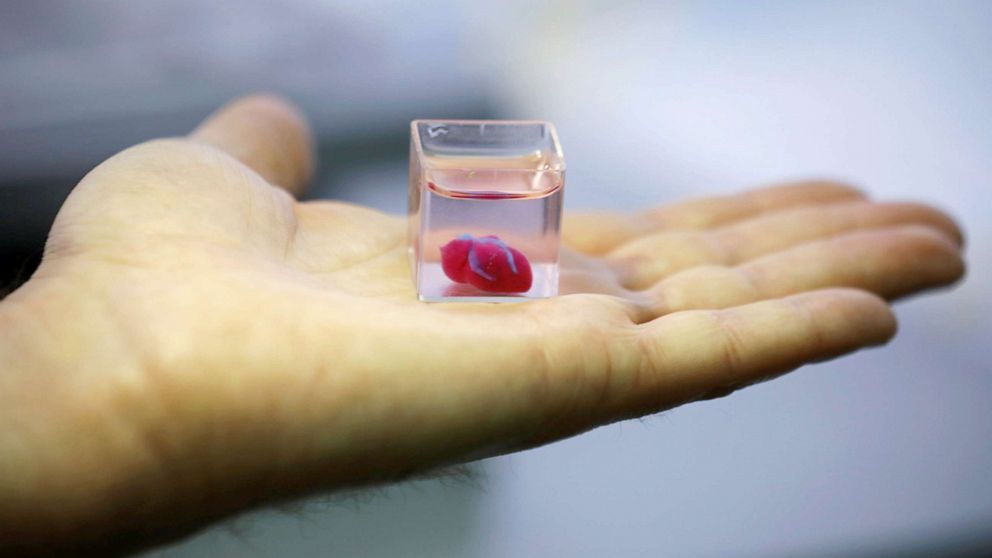In what can perhaps be the first of its kind in the world, researchers at Tel Aviv University in Israel have managed to 3D print a heart using a patie
In what can perhaps be the first of its kind in the world, researchers at Tel Aviv University in Israel have managed to 3D print a heart using a patient’s cells and biological materials, detailing their breakthrough in the journal Advanced Science, reports, UPI.
Scientists have previously built synthetic hearts and bio-engineered tissues using a patient’s cells. But the latest feat is the first time scientists have created a complex organ with biological materials. The proof-of-concept feat could pave the way for a new type of organ transplant. For patients with late stage heart failure, a heart transplant is the only solution. But there is a lack of heart donors.
According to the lead researcher, Tal Dvir, a material scientist and professor of molecular cell biology at TAU, “This is the first time anyone anywhere has successfully engineered and printed an entire heart replete with cells, blood vessels, ventricles and chambers. This heart is made from human cells and patient-specific biological materials.
“In our process these materials serve as the bio-inks, substances made of sugars and proteins that can be used for 3D printing of complex tissue models. Our results demonstrate the potential of our approach for engineering personalised tissue and organ replacement in the future.”
The heart printed couldn’t be used in a human transplant operation. Though completely vascularized, it’s too small at about the size of a rabbit heart.
“But larger human hearts require the same technology.” Dvir said.
